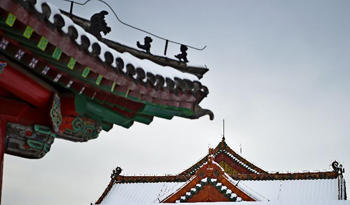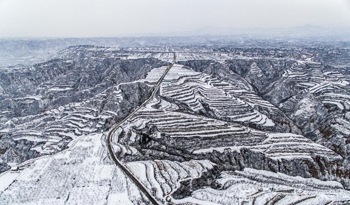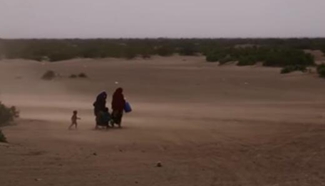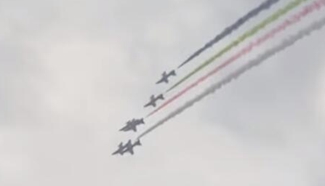By Matthew Rusling
WASHINGTON, Feb. 22 (Xinhua) -- U.S. President Donald Trump may get tough on Iran after its recent missile test, but experts believe he is unlikely to reimpose the multilateral sanctions on Tehran lifted in 2015.
U.S.-Iran tensions are on the rise after the Islamic Republic's recent test-firing of a ballistic missile. Some have called the test a violation of United Nations Security Council resolution 2231, and the Trump administration was irate at the news, saying it would put Iran on notice.
To add to the intensity, both Trump and Israeli Prime Minister Benjamin Netanyahu last week made waves in global media, after they named the prevention of a nuclear-armed Iran as a common goal during Netanyahu's visit to the White House.
For its part, Iran insists its missile test was not a violation of the U.S.-Iran nuclear deal, and has always insisted its nuclear program is peaceful.
Regardless, experts said Trump is likely to get tough on Iran over the missile tests and may impose new rounds of sanctions, although efforts would fall short of the massive, coordinated, multi-nation sanctions that were lifted after Tehran signed a deal over its nuclear program.
Getting multiple nations on board with that once again would be a tall order, as Western nations are eager to do business with the oil-rich Islamic Republic.
Trump will likely respond in much tougher terms if Iran continues to be provocative militarily, Darrell West, vice president and director of governance studies of the Brookings Institution, told Xinhua, but adding that the previous sanctions are unlikely to return.
It is not likely that Trump can get leading countries to reimpose sanctions on Iran, West said.
Many of these nations already have signed business deals with Iran and would be reluctant to terminate them. In addition, Trump already has upset a number of countries so he does not have the personal credibility to convince countries to reimpose new sanctions, West noted.
Most of the world would like to de-escalate the situation with Iran and bring it into the community of nations, he said.
Jim Phillips, senior Middle East research fellow at the Heritage Foundation, told Xinhua that Trump will have a strong reaction to Iran, pile on sanctions and rely primarily on Secretary of Defense Mattis to craft future policy in response to provocations.
Michael O'Hanlon, a senior fellow at the Brookings Institution, told Xinhua that there is almost no chance that will happen, when asked about the possibility of reimplementing the previous sanctions.
O'Hanlon added that he expects Trump to respect the U.S.-Iran deal on nuclear weapons, but will increase collaboration with Gulf allies in dealing with Iran.
He expected Trump to look for chances to fire back militarily or otherwise at non-nuclear provocations and to look for further ways of collaborating with Persian Gulf states on things like missile and maritime security.
He also expected Trump to keep U.S. forces in Iraq indefinitely.
Some experts said Trump's tough talk may gain the respect of the Islamic Republic's government, as the outspoken U.S. president shows he is a no-nonsense leader who won't back down. But other experts warned such rhetoric could also backfire.
"Hardliners in Iran could feel emboldened, they could step up violence against Americans in a place like Iraq," O'Hanlon said.
West said Trump's tough talk could backfire by isolating the United States and weakening the global alliance against Iran.
If other countries continue to build economic ties with Iran, it will be difficult for America to confront Iran, he said.












